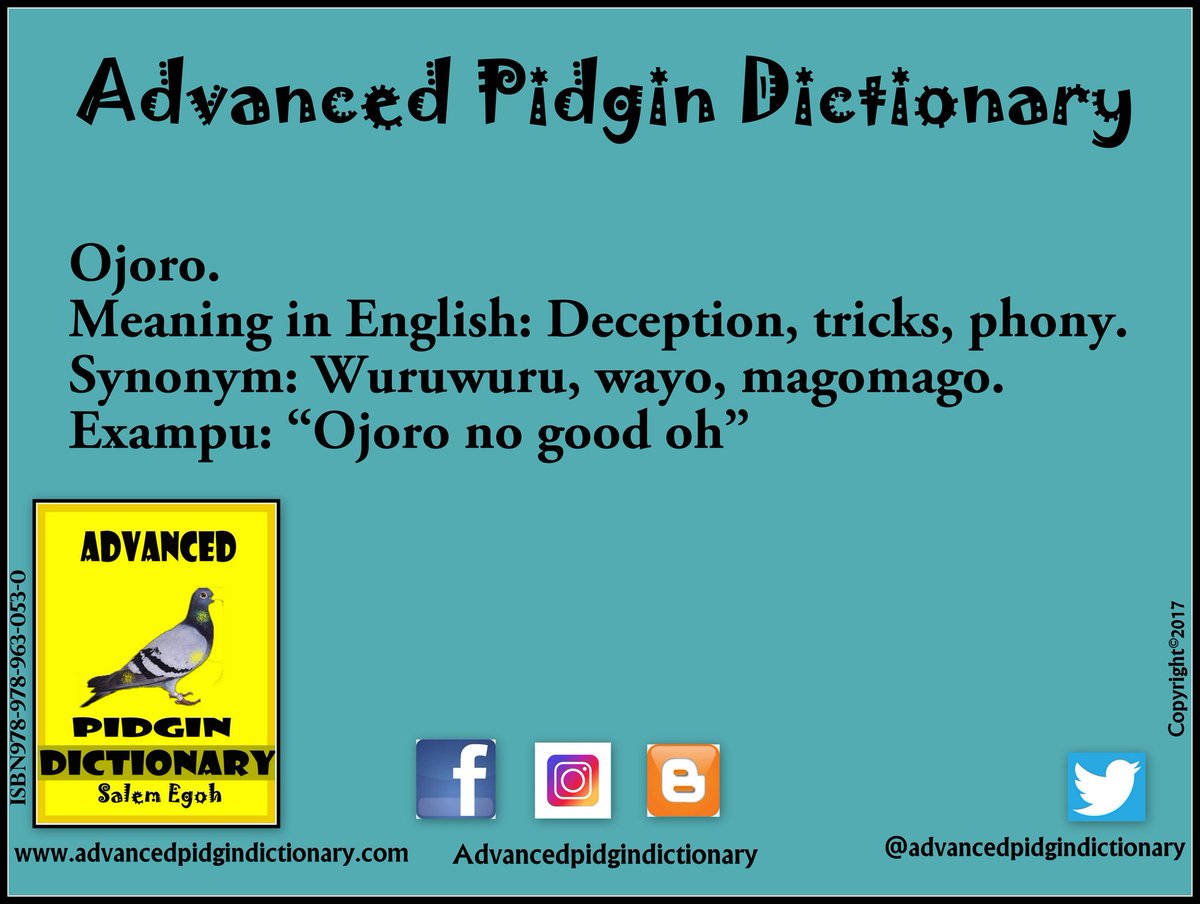
Notes accompanying the new dictionary explain, “By taking ownership of English and using it as their own medium of expression, Nigerians have made, and are continuing to make a unique and distinctive contribution to English as a global language.” It’s nothing new Qualitative – meaning excellent quality.Mama put – a woman who runs a food stall.Ember months – the busy period from September to December.Barbing salon – as you may have guessed, a barber’s shop.And to confer, they “rub minds”.Īs for the Yoruba name “Tokunbo”, this was originally the term given to a child born abroad but its use has been widened to include a wide range of imported items from cars to clothes and it’s now listed as an adjective! Ask a Nigerian what corrupt politicians do with state cash and you may hear that they’ll “chop it”, meaning steal it. When Nigerians say “see you next tomorrow” they mean the day after tomorrow. Crash courseįor those who haven’t grown up with the language, here’s a quick crash course:

It’s no surprise that this common language has thrived in a country of 190 million in which more than 500 languages are spoken.

The rapid rise of Nigerian pop culture with Afrobeat, a flourishing ‘Nollywood’ film industry and popular fiction by the likes of Chimamanda Ngozi Adichie have brought Pidgin English – a mix of English, words from local languages and street slang – to a wider audience. Now, their unique brand of Pidgin English has gone mainstream with the announcement by the Oxford English Dictionary that it’s added 29 Nigerian colloquialisms to its latest edition. Nigerians have long taken English, the former colonial language, and made it their own.


 0 kommentar(er)
0 kommentar(er)
